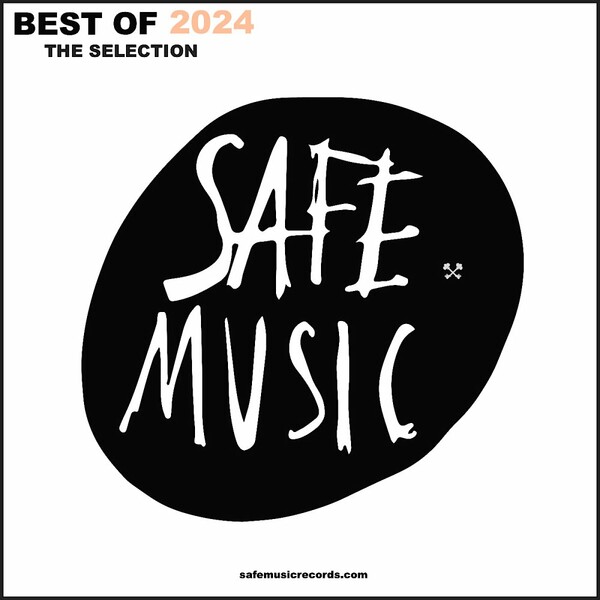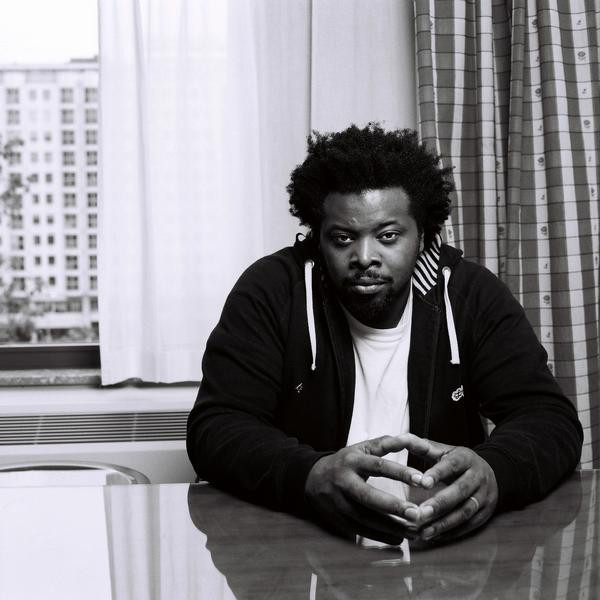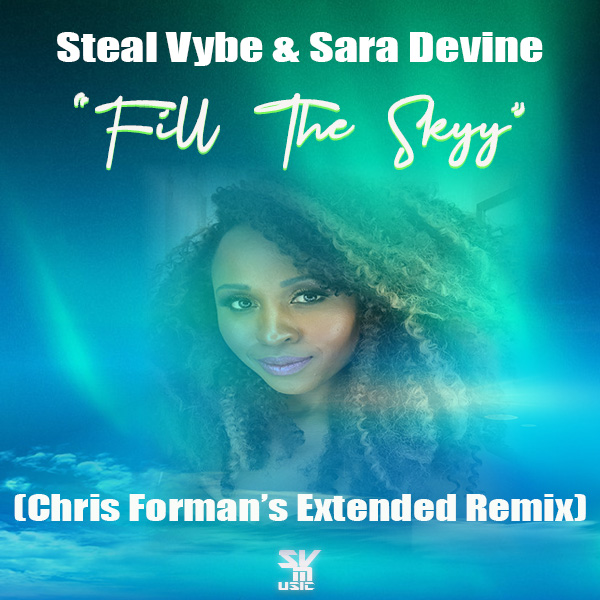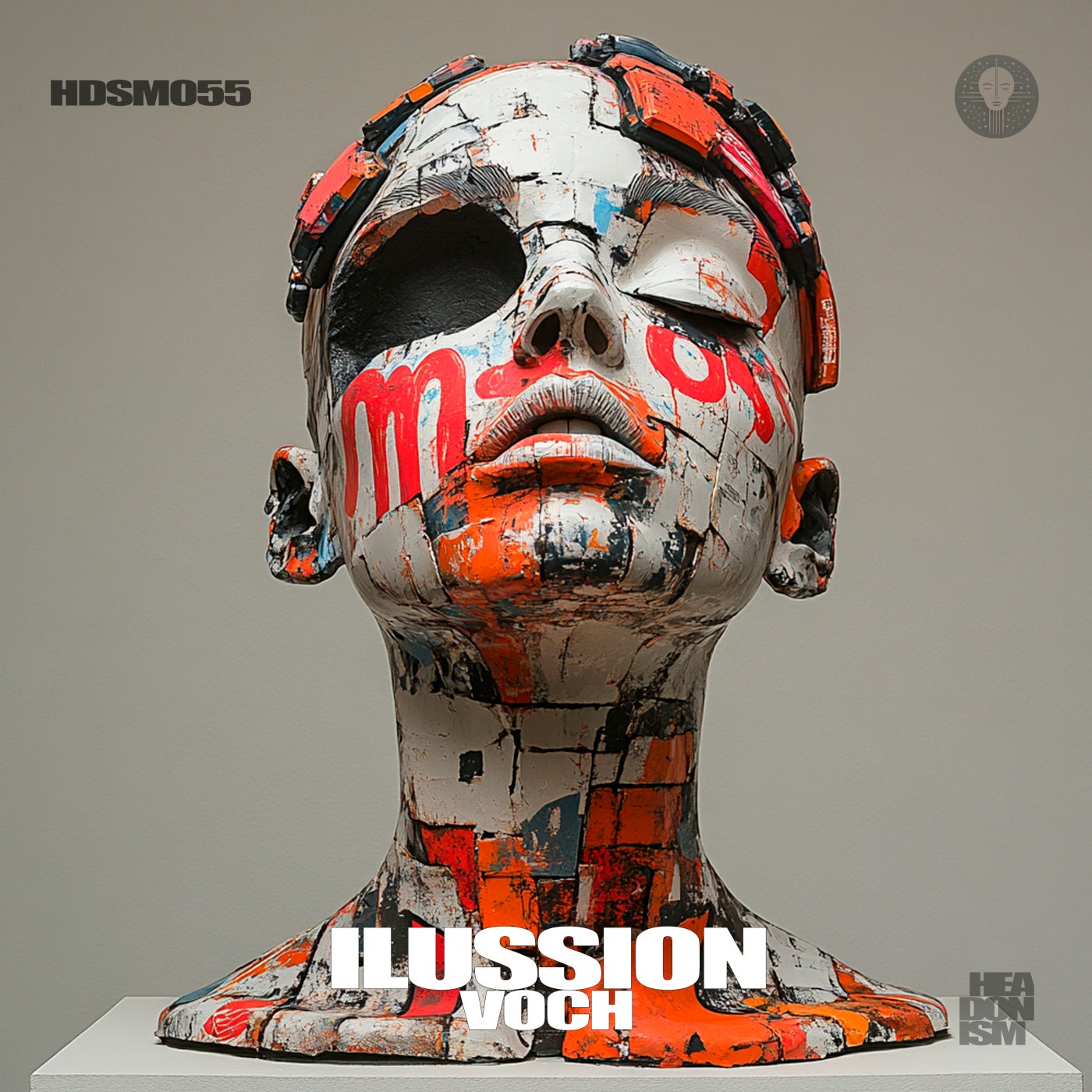"When I listen to some of the record I'm like... you're a lot angrier than you thought that you were," says Lauren Mayberry. "I think that's what happens when you put the stopper in the bottle and just try and keep things in for so long."
Releasing her first solo record this week, the purposefully titled Vicious Creature is an album whose inception runs through Mayberry's past decade in music. From the lightning ascent of Chvrches, the struggle of adjusting to her new life while handling a torrent of online abuse, homesickness and a need to prove herself within the band, themes across the record take cues from her past while she stays rooted in the present. "I think once we'd written those songs and got that out of the way, then we could get to some of the other stuff," she laughs.
Calling in from her home in Los Angeles, it’s early in the morning and she’s fresh faced, but still formidably armed with a sharp wit. Behind her, the light is soft, and a piano sits quietly in the corner of our video chat.
Chvrches broke through in the tail end of the blog era, when the Hype Machine was an aggregator of success and buzz was more than just a word. Their first track, "Lies" was posted on the trendsetting Neon Gold blog (Marina and the Diamonds, Passion Pit), and the music industry lost its mind. It felt like every A&R in London took the train to Glasgow for the trio’s debut show.
At the time, Mayberry was just twenty-three years old. Prior to Chvrches she’d been playing in indie bands in Scotland and occasionally writing reviews for the likes of The Skinny and (ahem) The Line of Best Fit. She hadn’t planned on pop stardom.
There was also something about Mayberry’s appearance, demeanour, or very existence that inspired either violence and vitriol or extreme attention. She was branded everything from controlling and icy to a diversity hire. In 2015, at the age of twenty-seven, Mayberry spoke out after receiving rape threats following the band’s video for single "Leave A Trace." To this day, she continues to receive abuse online.

Joining her in Chvrches were bandmates Iain Cook and Martin Doherty who had previously met a decade before at university in Glasgow. The pair had worked on music and played in bands together while Cook and Mayberry first met in 2011 when he produced her band’s EP.
With the benefit of hindsight, Mayberry can articulate the stresses and disparities that quietly impacted her formative years in the group. Alongside a great appreciation and fondness for that era and the opportunities it benefited her, she details a sense of isolation and inadequacy. It’s these compounding themes that form the backbone of Vicious Creature, a record that can feel both hopeful and destructive, joyful and lost.
Across the album’s twelve songs she plays with genre and reference points, whilst keeping in the wide parameters of pop. She inverts wordplay and invokes alter-egos with dramatic flair. The songs are simultaneously theatrical and direct. Just as Mayberry is the strident and decisive frontwoman of an agenda-setting group, she is also a sensitive and hopeful young woman. The sweet spot in this dichotomy is where her songwriting comes to life.
At times her record sits close to the synth-wave 80s pop of Chvrches, but it also brings in strands from Mayberry’s own formative and current tastes. Growing up, she loved everything from All Saints to Fiona Apple, and her tastes broadened further in her teens. In addition to piano lessons in primary school, Mayberry started to learn the drums with the hope of joining a band. "Irony being, I learned drums because I didn't want to be a singer and now here we are," she laughs.
In her last year of school, Mayberry enrolled in a foreign exchange programme and spent six months in Illinois with a hope that her Midwest emo dreams would play out. "I thought it was gonna be like it is in the teen movies and I was like, ‘I'll probably join a band in Chicago. I'll probably meet The Smashing Pumpkins,’" she laughs. "I remember being so excited when Chvrches eventually played in Omaha, I think because I romanticised it so much from listening to all those bands on Saddle Creek."
Music has always played a decisive role in Mayberry’s life. After graduating university she enrolled in a journalism masters programme in Glasgow where she joined Blue Sky Archives, a bright, indie-pop collective. Originally stepping in as the drummer, it wasn’t long before she was swapping roles and taking on keys and vocals. "We always make the joke that my friend Paul from Blue Sky Archives was my first A&R because he was like, ‘You should sing more. And then if you're singing on them, you should write the lyrics on the ones that you're singing on,’" she laughs. "I think I always had this romanticised idea that being in bands, it's like The Goonies, it's like Stand By Me. Everyone's rooting for each other."

It was that dogged Dogtanian sentiment that drove Mayberry through the early years of Chvrches. The hype around them acted as a catalyst, accelerating the trio rapidy to opportunities and platforms that felt dizzying. While Doherty and Cook had years of experience in their arsenal, for Mayberry everything was new and fragile. Those feelings were often compounded further as the only woman in the room. "I think now, having a bit of time and space to reflect on that stuff, I can see how fucking crazy it was in good ways and in bad ways," she tells me. "Obviously we were incredibly lucky with what was happening, but I look back on a lot of that and I'm like, fuck me. I was twenty-three and I was younger than everybody. I was the only girl in a lot of the experiences. They knew each other, they were friends already. I just felt like this little fraggle, flapping along at the back of the bus being like, ‘What's going on?’"
Looking back, Mayberry can balance feeling out of her depth with the magnitude of the band’s quick success, although she flinches at the suggestion of imposter syndrome. "I used to be really hard on myself," she says. "There was always this undercurrent where I felt like the weak link. I wasn't a terribly natural performer. I was quite uncomfortable. I felt quite out of my depth. In the space of six months I went from being a co-singer keyboard player in another band with people I'd been friends with for five years to being the front person of a band, which I'd never done. We were doing all these massive shows and big promo things. We were on Jools Holland within a year and a bit of being in a band."
It was around the same time she joined Chvrches that Mayberry founded TYCI, a creative collective run by women who, amongst many things, hosted a radio show, published a zine and promoted shows in Glasgow. As well as being a cultural asset to the city’s female-identifying community, it also gave Mayberry a space to process and position her experiences in the band. "I do think without that I would have been even more at sea with it all," she says. "I think a lot of that stuff was quite overwhelming and it was quite isolating and it was quite lonely. I think having something to do where I was always in contact with those girls, we were always emailing and chatting and texting and then we became friends really out of that, I think that that genuinely saved me. I feel like, even with the best of intentions, the guys in the band could never really understand what was going on with me. I think they found it quite confusing or they didn't see why certain things were as big a deal as they felt. I think without that it would have been an even lonelier experience."
Part of her isolation came from the process of pretending, of feeling forced to ‘man up’ (TYCI is short for Tuck Your Cunt In, a very Glaswegian take on the term) and to always be ready and capable. By simply wanting to command the same respect and treatment as her bandmates, she pushed herself further into fiction. "There was a TikTok that I was making the other day and it was like, find an old Chvrches interview and then answer the questions now that you were asked in that," she explains. "It made me quite emotional watching it because I looked so small and so sad. The answers I was giving were so meek and worried. When I was talking about music and gear, I was like, why are you talking about quantizing? You don't fucking know what quantizing is. To this day, I don't fucking know what quantizing is. But then I wanted so badly to be taken as seriously as the guys."

Mayberry had a lot more to deal with than Cook and Doherty. While she admits that they also had their own struggles, often being shot out of focus or pushed to the back, they didn’t receive the same level of online abuse, especially not violent and sexual threats. In 2019 Mayberry called out past Chvrches collaborator Marshmello’s decision to work with Chris Brown, branding the singer an abuser, something she stands behind to this day. It led Brown to unleash a vitriolic counterattack which encouraged a terrifying torrent of hate towards her.
Unfortunately, it was not a new experience. Since the early days of Chvrches, Mayberry has been the recipient of shocking behaviour and abuse. "I think I did know my opinions on things, but I think maybe I would go too far in terms of being really forthright about them because I was trying to seem like a grown-up around grown-ups," she says, speaking generally. "I think in a way it was great that some of the conversation they allowed to be so informed by me or led by me, but then there's a lot of situations I look back on where I'm like, yeah, there were grown-ups in the room and they shouldn't have been waiting for me to pull a ripcord when something got too much."
In recent years, she’s found camaraderie with other musicians who’ve sadly had similar experiences. "Michelle Zauner from Japanese Breakfast and I talked about this once, cuz she obviously receives a very different kind of rhetoric around her work and herself," she says. "She was like, ‘Chvrches was so odd to perceive because for some reason there's something about your face or what you represent or whatever thing that you trigger in certain men's brains, that just ignited something very specific.’ I was like, wait, I thought that was all happening to everybody. And I think it does to varying degrees, but there was something specific about it. I think I was the manic pixie nightmare for a lot of these men."
Another artist who gave Mayberry a confidence boost was Shirley Manson. Looking back, she can draw parallels between hers and Manson’s start in music, both being young singers in a band of older and more experienced men. "She definitely articulated things about that experience that I wouldn't have verbalised out loud or wouldn't have known to verbalise out loud," she says. "She was like, ‘Once you move out of that phase of your career you will be fucking free to just be an artist. You can just do that, you don't have to think about that anymore.’ She was like, ‘There's a freedom to that that you don't know about yet.’ She had me over to her house. She'd made soup. I just think there's a generosity to that that a lot of people maybe don't have."
The impetus for beginning the journey towards her solo record wasn’t just born out of the frustrations of being a woman in music, or feeling she had a statement to make. Instead it was a culmination of factors, of motivations and fears, which led Mayberry toVicious Creature. "I just remember being on the road and thinking, 'if this went away tomorrow, what the fuck would I do?'" she says. "I felt like Iain and Martin had an inbuilt career in the way that I didn't. Those guys are such great producers and such great songwriters, and they were already making music with other people. I’d not ever thought about doing anything outside of this because I'm so ‘Goonies forever’ trying to be part of the gang and wanting to be loyal and wanting to be trusted. It was a fun daydream that would make it feel less claustrophobic sometimes."

At the end of 2018, aged 31, she moved to LA with the idea of writing her own material, but her plans remained a daydream all throughout the pandemic as Chvrches worked on their fourth record, 2021’s Screen Violence. "I think I denied it for a long time because I was nervous to do it and I didn't want it to cause problems," she says. "Then when we got back on the road, I was like, ‘I want to do it though.’ I just remember there was a bit of a funky day on tour and I remember being in my bunk in Denver and googling, ‘How old was Aimee Mann? How old was Gwen Stefani? How old was Annie Lennox?’ That's your own internalised misogyny or whatever, but I was like, I've fucking waited too long. I don't have the opportunity to do this now, but I think I need to give myself the permission or the agency, cuz otherwise I'm going to run out of oxygen in here."
She began writing in the spring of 2022, at first working with her friend, writer and producer Matthew Koma who encouraged her to take that initial step. From there, she began utilising the opportunities that LA afforded her. "I think it was nice the way that it started, quite informally almost," she says. "Matt was very helpful at the beginning. He had certain people he was like, ‘Maybe you would vibe with that person?’ He definitely helped set a lot of that up and then once we got the project signed the label did have a lot of ideas."
Those ideas came into play after schedule changes meant Koma was no longer available to work on the record, but not before he had finished building the backbone of the album with tracks like recent singles "Crocodile Tears" and "Shame." The former pulls from a different field of 80s influence than her previous work in Chvrches. A jubilant riff of pounding synths and flirting strings upholds a cutting chorus. "Maybe I’m a villain but I find it kind of thrilling when you cry," she sings.
For Mayberry – who wrote the track alongside Koma and Ethan Gruska – the crux of the song was finding a balance in sound and sentiment. "I had the song concept for a long time, but I just couldn't figure out how to crack it for a while," she says. "As soon as we went into the studio and we were talking about the idea of the song, Ethan sat down and started playing that stringy synth riff. I was like, "Oh, it's supposed to be sassy bitchy, not just fucking mean."
Similarly, "Shame" comes from a place of catharsis. Dynamic in construction, it positions her vocal at the forefront, a stream of consciousness that delves into darkness. "It didn't occur to me that certain choices I've made in my personal life or my romantic life were quite fucked up. I’m only aware of that now having had six years in a relationship with somebody that cares about me in the correct way," she says. "I think I've just been with a lot of people who are quite controlling and competitive and manipulative and it's weird to have that so intrinsically linked to what you think is romance, what you think is love, what you think is attraction. Then you're like, this is quite dark. So yes, now I live out all my toxic tendencies with my cats."

The songs on Vicious Creature are only a small percentage of the tracks that Mayberry wrote for the record. Two years in the making, she pushed the limits of her creative comfort and her craft, testing the waters with a wide range of writers and producers. One of the record’s most impactful moments comes at its close. For "Are You Awake" she wrote with award-winning Canadian songwriter Tobias Jesso Jr, lamenting the distance that comes with living away from home. "Obviously I love Tobias' work and I never thought he would ever want to fucking write a song with me," she laughs. "I was like, it's just two foreign people sitting in a room thinking about stuff. If I tried to write that with somebody who hadn't had that kind of experience, being separated from their family and being far away from people you care about, it would have come out differently. A happy emo accident, I guess."
Another key figure in the making of the record was writer and producer Dan McDougall. After Koma was unable to finish the album, Mayberry was forced to find new people to work with. She was already friends with McDougall, and reached out to him earlier this year when she was planning a trip to London. "I started making things cuz somebody I was friends with encouraged me to do it and then I finished the record with somebody that I was friends with," she smiles. "I was like, ‘If we get one song out of it that's decent, that would be nice and that'll probably be the album rounded out.’ And then we wrote four songs and I was like, ‘Right, I've got to kick stuff off this record cuz these are better.’"
Together, they wrote the striking "Oh, Mother," Mayberry’s most direct and personal work to date. A sombre piano-ballad, its lyrics are imagery-rich and loaded in sentiment. "Headphones in, I know you hate this song / And you call to me when I’m already gone / Oh Mother, I could do without you," she sings.
Its subject matter was pulled from a conversation in the pub the night before their session, McDougall blurring the lines between work and friendship, pushing her to lean into painful feelings. "I would never write that in Chvrches," she says. "That's what makes Dan a great writer and a good producer. I was like, ‘I want to write another song about homesickness,’ and he was like, ‘What about we write a song about this thing that I know that you are dealing with? Maybe we should do that?’ He knew to put the hook in and be like, ‘Bring this out. This is the right thing to do here.’"
Speaking about the song, McDougall tells me, "I would say that’s my role as a writer, to draw things out that are already there. Not being strangers made that a hell of a lot easier. I thought, let’s push it today and asked Lauren her biggest fear. The answer lies in that song. She came in with an ‘anything goes’ approach. We’ve known each other a while but never worked together. From day one we got stuck straight into peeling back the musical and emotional layers."
The themes of "Oh, Mother" and its sense of preemptive grief draw a direct line to the album’s penultimate track, the sun-kissed synth rush of "Sunday Best." Juxtaposing dark meaning with hooky production, Mayberry takes inspiration from Talking Heads to reel off a list of grievance-fuelled declarations and directives. "I was like, I want to make this theatrical cool pop record and then life had other plans," she says. "I just gave so much of a fuck about stuff that really didn't matter and I gave way too much time and energy and love to people who honestly didn't fucking deserve it. I just think that when something happens in life that really pulls those things into focus, you have to listen to that."
Writing "Sunday Best," she was reunited with Greg Kurstin who produced Chvrches’ difficult third album, Love Is Dead. This time around, she found their relationship shift as she took the driving seat. "I really enjoyed that process because working with Greg was so fun and joyful and he's such an insanely high level musician, but he doesn't come into a room with that energy," she says. "It was really nice to go back and work with somebody that I know so well, but in a circumstance that was so different. When I went into the room, I instinctively sat on the couch at the back. I was like, ‘I've been promoted to the chair by the desk!’ It was just such a different way of writing than when we made the Chvrches record. Working with a producer as a band versus an individual, it's just a very different experience."
Another album highlight, opening track "Something in the Air," draws strongly from 90s girl-group R&B. Working with McDougall, Mayberry’s vocal cadence lurks in the song’s groove before exploding into a dominating chorus, fuelling one of the record’s biggest pop moments. "I was like, I really want to do a kind of sung-spoken All Saints girl band-y verse, so that's where we started." she says. "We took a break and we went upstairs to the kitchen bit of the studio complex and Dan started chatting to somebody he knew who is an iconic British musician who came to prominence in the 90s. Somehow the chat turned to quite a conspiracy theory-based place, about electricity and 5G, and I was sitting in the corner eating my sandwich being like, ‘What?!’ When we went back into our studio we were like, ‘Lol. The fuck was that?’ It was literally just a joke. We were like, ‘Careful. Don't touch that. Something in the air. It's going to kill us.’"
That sense of play echoes through many key moments across the record. Just as songs like "Sunday Best" and "Oh, Mother" give direct shots of sentiment-rich pause, the record’s most gratifying cuts come when Mayberry is comfortable working with friends and taking shots at her past. On the joyfully cynical "Sorry, Etc" she pulled in Chvrches’ longtime front of house engineer Paul Gallagher to play its riotously dirty bassline. A pulsing punch of 00s synth-pop, it channels Gwen Stefani and Paramore, towing the line between smirk and smile. "Originally there was a big synthy bassline, because we were trying to do that Björk fucking big hefty bass synth, but when we started playing it I was like, it just doesn't hit the way I want it to hit," she says. "I was sitting talking about it with our front of house, who has been with Chvrches since the start and is a great, incredible musician in his own right. We started talking about references and the answer just fell on my face. I was like, ‘Wait, Gal's an incredible bass player. Maybe you should fucking play it, Gal.’ It's quite nice that the record ended up being finished with people that are so close to me in my life."

For Mayberry, it was equally important she be involved in the creative that encapsulates the album too. While writing the buoyant but sass-fuelled saccharine of "Change Shapes" she could see the video’s dance move playing out in her mind. "I think so much of the stuff I write is some heavy emotional content. I'm an emo bitch at the end of the day. But then every so often I'm like, I just want to write a pure sugar pop song," she laughs. "But even in that one, when I zoomed out of it I was like, ‘She's telling us something in the lyrics of the verse there.’ I do like that when your subconscious brain knows what it's doing and your conscious brain is like, ‘No, I'm just writing a pop song.’"
Throughout the creative process she was mirroring the themes of her writing in mood boards, always imagining how things should look. She worked closely with the record’s creative director to ensure the visuals platformed both sides of the album’s narrative, her glittery on-stage persona versus her vulnerability and real life emotions.
It also helped lead her to the album’s title, a line pulled directly from the almost Swift-esque word-thick drift of "A Work of Fiction," the lyrics stating, "Nostalgia’s such a vicious creature / Another way to say that you fear the future." Its sentiment is embodied in the album’s cover – an illuminated, confronting shot of Mayberry adorned with glowing spikes. "So the album cover, that's the vicious creature that is this created character that men hate so much. But then inside the record is the actual things that I think and feel," she explains. "When we first started the band I was like, ‘Why are people so afraid of me? Why are they being so vicious to me? I don't understand, I'm just a sensitive little person.’ I think it took me a long time to be like, oh right, it's not me. I was like, if I work harder then I'll prove that I'm loyal, I'll prove that I'm trustworthy, I'll prove that I'm good enough, I'll prove that I'm nice, I'll prove that I'm kind. Now I'm like, yeah, it's never going to work. That just isn't ever going to happen."
Her work on the creative side of the record also allowed Mayberry to pull on her penchant for the theatrical, something she could never unleash within Chvrches. She tapped into the subversive female themes of musicals like Chicago and Cabaret, allowing the dramatic to drive her vision. "Even during that last round of Chvrches touring, I feel like it was becoming apparent to me that I might have pushed the boundaries as far as can be pushed," she laughs. "The guys were very generous letting that happen, but they don't want to put prop blood on themselves. They don't want to do costume changes. They're happy to be a part of it, but it's not something that's a huge part of their creative process. I think when I started writing the record, I wanted it to be this kind of dramatic theatrical character-driven piece, and there's definitely songs on the record that are that, but I would say it's about that half that; half, normal me entered the chat because life was happening."
The release of Vicious Creature doesn’t mark the end of Chvrches either. Instead, Mayberry feels that having her own outlet creates more space for the project to continue. "It was kind of like, you've not opened the door and you've not exited the building, but you've opened a window and some oxygen can get in. I think that is just going to be a healthy thing going forward," she says. "But yeah, it was quite odd being like, we're opening for Coldplay and I need to go proof this mix. I got a couple of very generous pep talks from Chris Martin about my creativity."
Considering the external forces which led Mayberry to her solo journey, it’s surprising that more women don’t feature across the record’s writing credits. "When I went into it, I was very conscious of wanting to write with more women and I've written with more women on this record than ever in my life, but those songs just didn't make the record," she explains. "I think I wrote probably about thirty-five or forty songs for the record over the course of two years. I think it was important for me to try to not be in such a dude-heavy space, but I guess just for whatever reason, those songs didn't make the record."
Given Mayberry’s formative love of left-field singers and Midwest emo, it’s interesting that her debut effort sits so solidly under the pop umbrella she occupies with Chvrches. "I think I've always been a pop writer in terms of the melodies that I come up with are quite poppy. When I think about Blue Sky Archives... that's not a hardcore band, it's a pop band with guitars. I think that that's just always how I've written," she says. "I knew that I wanted the lyrics and the storytelling to be more important in terms of the process and not be the last thing that goes into a song. My main rules were: I want to foreground that stuff, make that more of a priority, and I don't want to make a knock-off shit Chvrches album. I was fine to put the synths away for a bit. I was like, you’ve just got to follow your nose and do what feels right."
A long time in its inception and creation, working on her solo record not only helped Mayberry to process her own feelings and past experiences, it gave her the objectivity to appreciate her journey. She no longer needs to create a work of fiction around herself. Her power lies in embracing the person she’s become. "I used to be, not embarrassed, I was just like, ‘Fuck. You've done such a bad job of all this stuff.’ But now I've tried to reach a place of more kindness to myself about it," she says. "I'm never going to be the most highly trained, highly skilled person in the room, but I can write and I can have empathy and I know about storytelling in that way. Now I'm like, that is your strength. Hold on to that."

 1 month ago
6
1 month ago
6


















 English (US) ·
English (US) ·